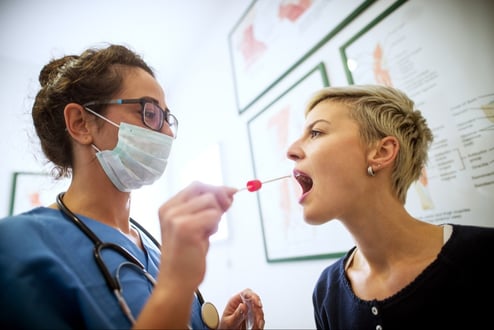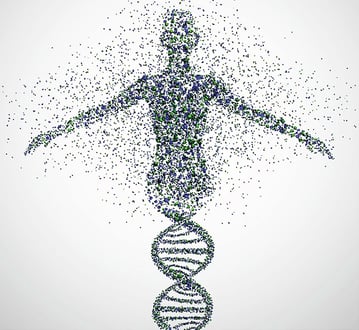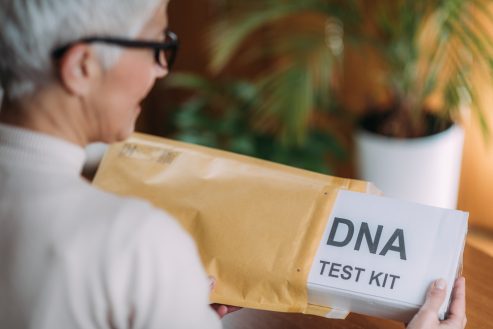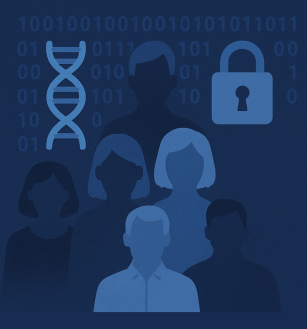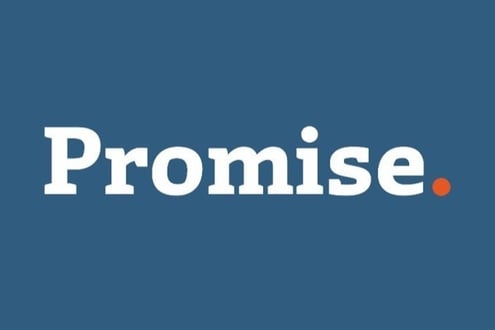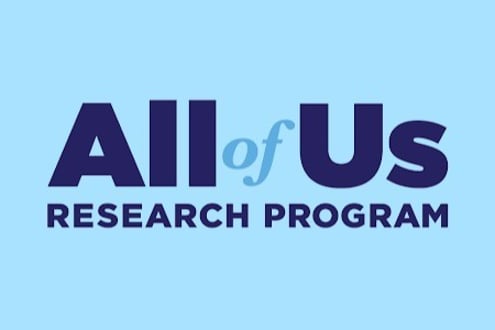Which Genetic Test is Right for Me?
Choosing the Right Test
Genetic testing is not one-size-fits-all. Labs offer different types of tests. Choosing the right one is complex. You should consult with a genetics expert before testing to ensure that the right test is ordered from a reputable lab. Below are some key considerations:
Which genes are included?
Some genetic tests look for just one or a few specific gene mutations. Other "multigene panel tests" are more comprehensive and look for several mutations in a single test. It's important to understand which genes will be included in the test before your genetic test is ordered. Larger panels are not always better. Some genes included in larger panel tests have been studied less, and how they impact cancer risk may be unknown. A genetics expert can help you choose the most appropriate test for your situation.
For more information, visit our page on the genes associated with different types of cancer.
Which lab should I use?
Many different labs offer genetic testing for risk. It is important to use a reputable lab that is certified by the College of American Pathologists (CAP) or Clinical Laboratory Improvement Amendments (CLIA). Reputable genetic testing labs include:
- Ambry
- Color
- Exact Sciences
- InVitae
- Myriad
Labs may use different methods to test for mutations. The testing method may affect the cost, accuracy and time it takes to get results. Genetic test results usually take two to three weeks. Most labs offer quicker results for people who need the information to make urgent treatment decisions.
Labs often contract with healthplans, so your insurance company may determine which lab is used.
Be cautious about signing up for genetic testing at health fairs. Sometimes less reputable labs will sell their tests directly to the public at health fairs with little oversight from doctors or genetics experts.
If you have had a negative experience with a lab, you can file a complaint with CLIA or the . Learn more about this process here.
How much does genetic testing cost?
The cost of a genetic test may depend on the lab performing the test, the type of test ordered, your health insurance coverage and whether you meet testing guidelines. Insurance will usually cover the cost of genetic testing, but out-of-pocket costs may vary. Most people can get genetic testing for $250 or less. You can learn more about paying for genetic testing here.
Should I use ancestry testing to learn my cancer risk?
Ancestry testing is genetic testing that helps people find their relatives or learn more about their ethnicity. These tests are sold for recreational purposes only. They are not meant to guide medical decisions.
Some ancestry testing companies may offer limited testing for a few mutations in , and some genes linked to . Ancestry tests do not look for many other gene mutations that may be linked to cancer. Although almost 3,000 mutations have been identified in and over 3,300 mutations in , ancestry tests search only for a few of these mutations. Other genes, such as and , are not included in the current ancestry tests.
The warns people not to use ancestry test results to make medical decisions and advises individuals to have testing with a clinically certified lab to confirm the results. The agency also emphasizes, “It is important for patients to consult their health care professional who can help them understand…their individual cancer risk.”
Testing within research
Participating in genetics research is a great way to contribute to science and improve care for future generations. Some clinical trials include genetic testing with participation in the study. Genetic testing within research may differ from clinical testing through your doctor. Before participating in a research study, make sure you know the following:
- What are the goals of the study?
- What is required of participants?
- Is genetic counseling included in the study?
- Does the study cover the costs of genetic counseling and testing?
- Which genes will be tested?
- Will you receive your test results?
- How long will it take to receive your results?
- Who will have access to your test results?
Learn about research studies that include genetic testing by visiting the list below.
In the News
Read our Blog
June 14, 2022
May 14, 2025
How to Get Genetic Testing
Are you interested in getting genetic testing? Learn about next steps.
Benefits and Limitations
Genetic testing can provide important health information, but there are limitations you should know about before testing.
Deciding about Testing
Following these steps can help you decide if genetic testing is right for you.
Genetic Counseling
Genetics experts can help you understand genetic testing and interpret test results.
Types of Test Results
It's important to understand your test results and what they mean for you and your relatives.
What to do After Testing
Learn about the next steps after receiving your genetic test results.
Below are some of our featured research studies looking at genetic testing. To search for additional studies, visit our Search and Enroll Tool.
WISDOM Study: Women Informed to Screen Depending on Measures of Risk
Clinicaltrials.gov identifier: NCT02620852
The goal of the Wisdom Study is to determine if breast cancer screening can be made better by personalizing each woman’s mammogram schedule, compared to the current one-size-fits-all, annual approach. The Wisdom Study is designed...
Clinicaltrials.gov identifier: NCT04995198
PROMISE is a nationwide registry of prostate cancer patients with inherited mutations; screening approximately 5,000 participants with a prostate cancer diagnosis. The PROMISE team is studying how these mutations affect patient outcomes and hope to...
The All of Us Research Program is seeking one million people from across the U.S. to help build one of the most diverse health databases in history. We welcome participants from all backgrounds. People who...
